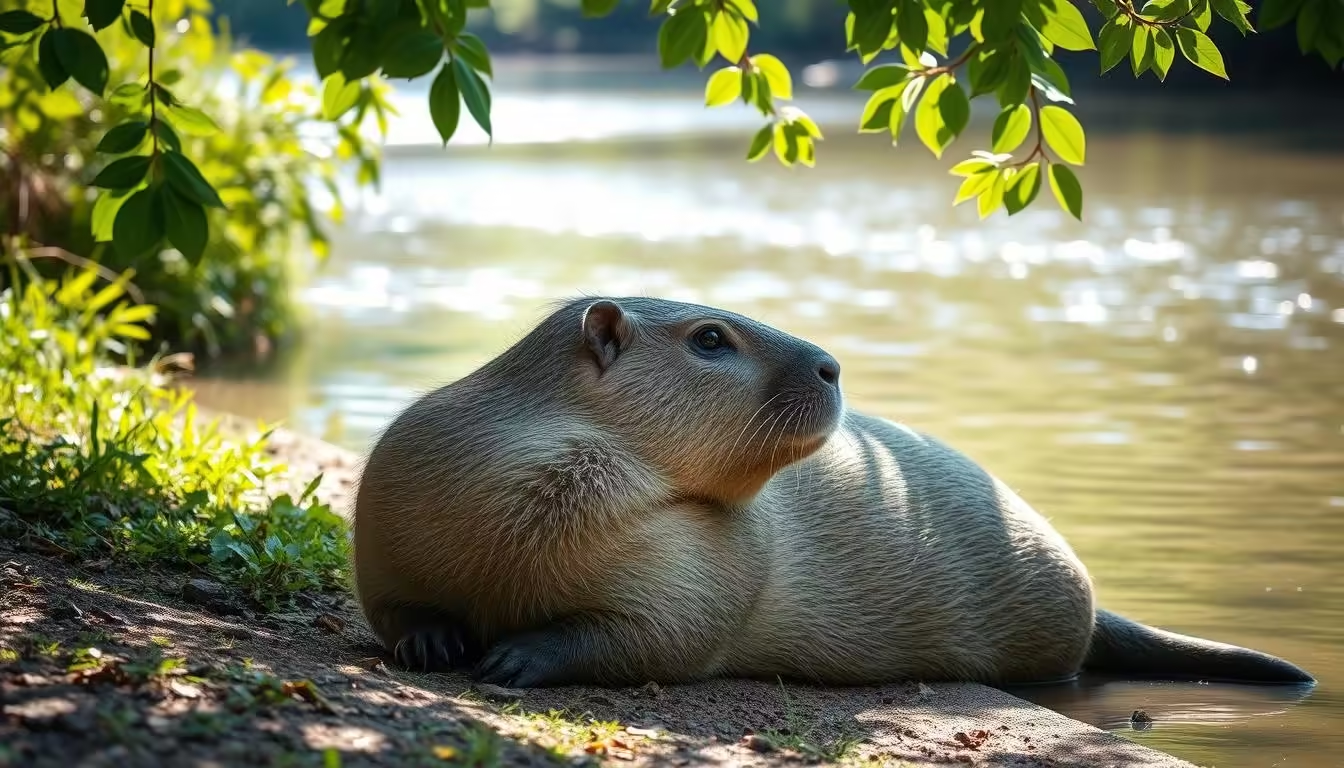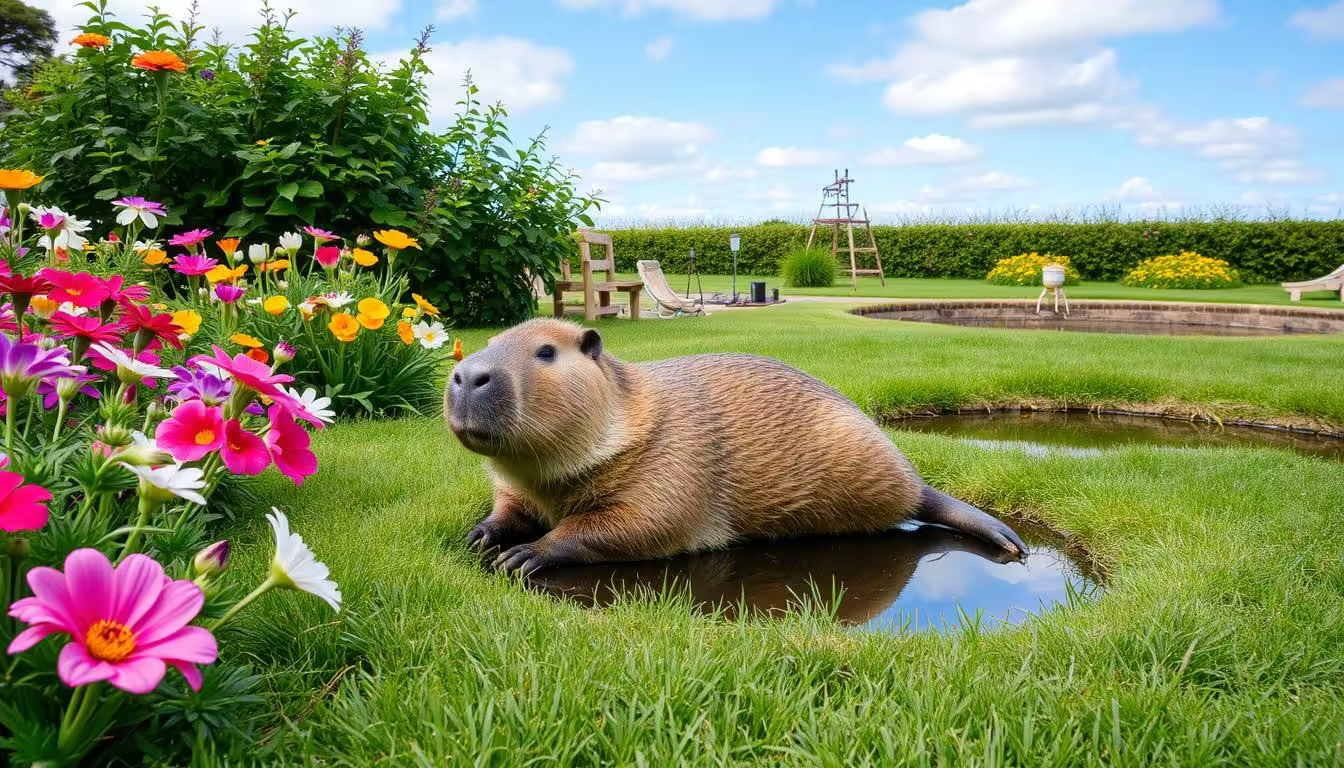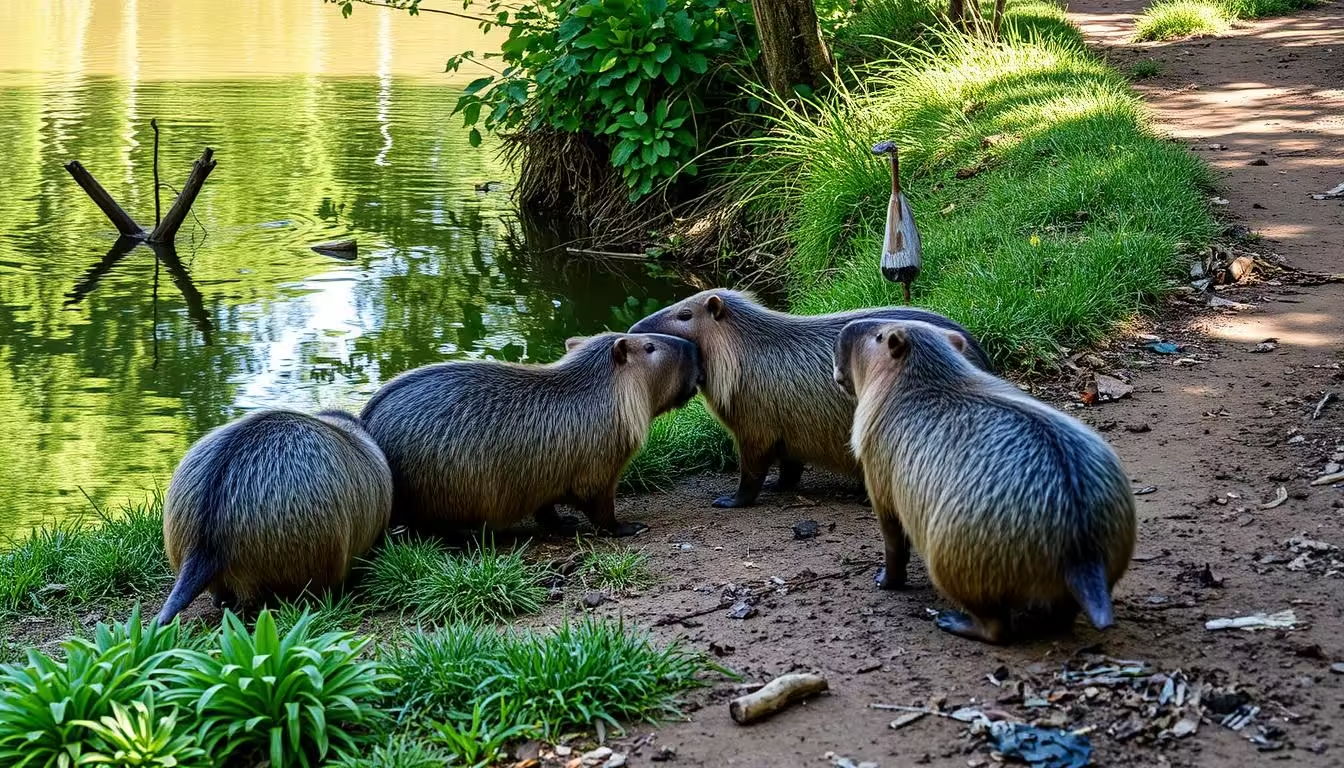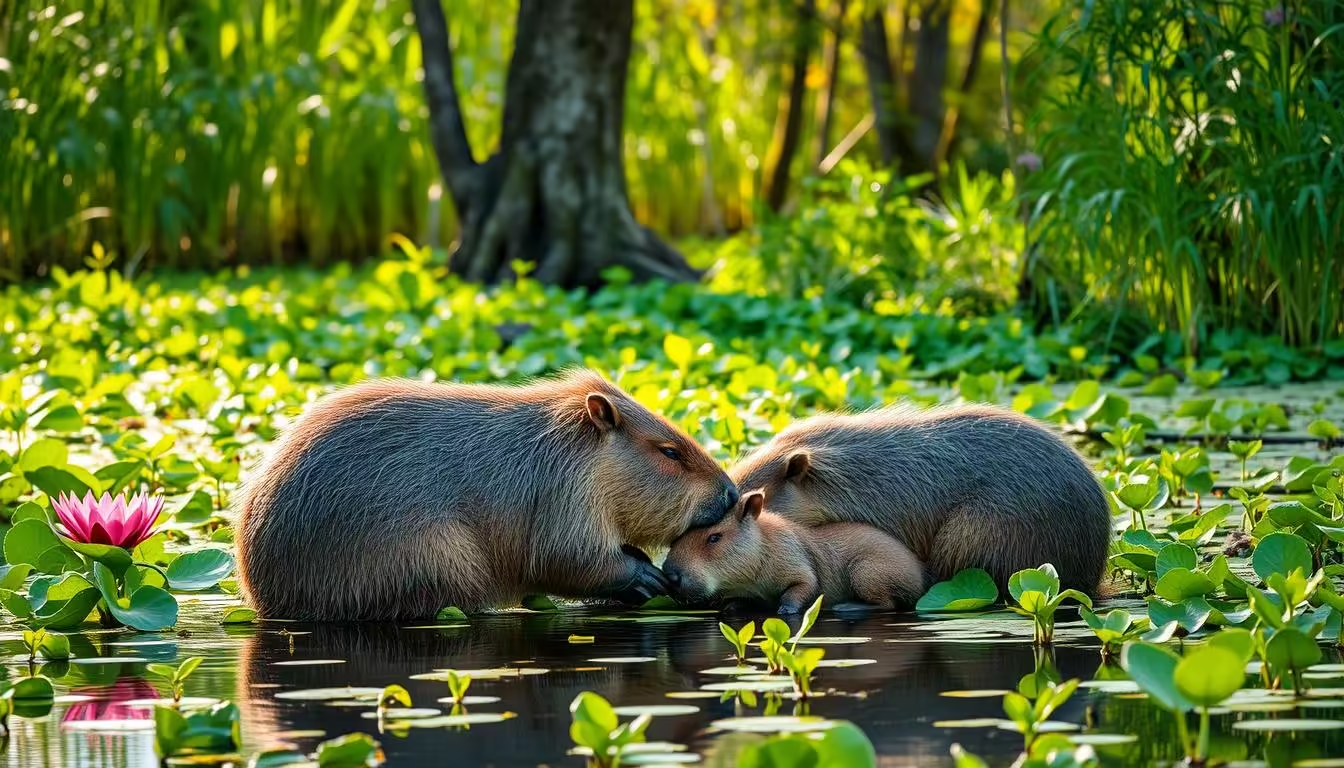Key Takeaways Capybaras require specialized care due to their semi-aquatic nature and social behaviors. Proper habitat design, balanced nutrition, and social interaction are essential for increasing capybara lifespan. Aging capybaras have unique dietary needs and may require adjustments to their care routine. Regular health monitoring and preventative measures can help avoid common capybara health issues. […]
Category Archives: Capybara
Capybaras, the largest rodents in the world, are semi-aquatic mammals native to South America. Known for their friendly and social nature, these fascinating creatures thrive in groups and enjoy swimming in bodies of water. Capybaras are herbivores, primarily feeding on grasses and aquatic plants, and require a spacious environment with access to water for their well-being. Their gentle demeanor makes them popular exotic pets, though they need specialized care and social interaction to remain healthy and happy. Whether in the wild or as pets, Capybaras captivate with their unique charm and tranquil presence.
Capybaras social lives and big bodies are especially fascinating. One key thing about capybaras is how breeding affects their lifespan. Knowing this helps us understand their health better. Key Takeaways Female capybaras in the wild have an average lifespan of 6 to 10 years. Captive female capybaras can live up to 12 years on average. […]
Capybaras often live in groups of 10 to 40. They are great swimmers, able to hold their breath for up to 5 minutes. They even coexist with predators like caimans, showing a unique relationship in their ecosystems. The International Union for Conservation of Nature (IUCN) says capybaras are not at risk. But, habitat loss and hunting […]
Capybaras can live for about 6 years in the wild. But, human actions can shorten their lives. As the world’s population grows, capybaras face threats like habitat loss and hunting. It’s important to know what affects capybara lifespan. This knowledge helps us protect these unique animals. We’ll look at capybaras’ natural life, their habitat, and […]
Capybara Lifespans in Natural Habitats Capybaras love places near water, like marshes and rivers. They are found in countries like Colombia, Brazil, Paraguay, and Argentina. The IUCN says their population is stable, with no big threats. Capybaras are part of the Rodentia order. While mice and rats live up to 5 years, some rodents can […]
Capybaras animals are fascinating, with their size, social nature, and complex reproductive cycles. It’s important to understand capybara pregnancy and its effects on their health and lifespan. This knowledge helps in conserving and managing these remarkable animals. Key Takeaways Capybaras live 4-8 years in the wild and up to 12 years in captivity. Their reproductive […]






